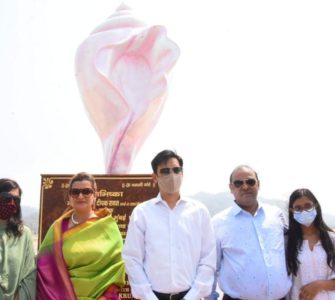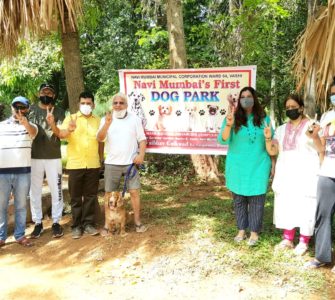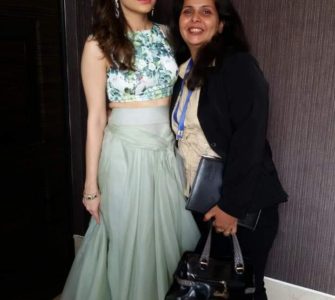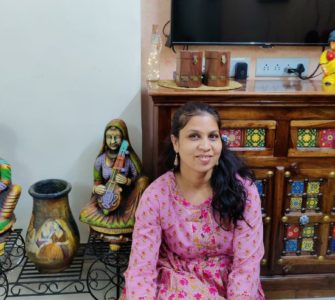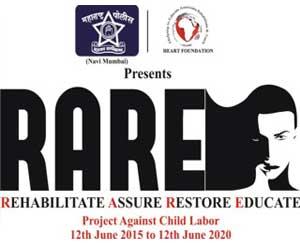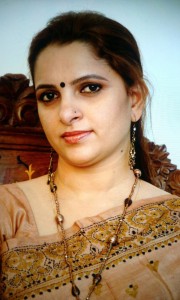
Recipient of Prime Minister’s Award for excellence in Public Administration, Varsha Bhagat, director, Education, Training and Service Centre for Persons with Different Abilities (e.t.c.) is a well known figure in Navi Mumbai. Known for her selfless and dedicated services, Varsha Bhagat is greatly applauded for pioneering the idea of establishing e.t.c.- A ‘One Stop Resource Centre’ for catering to the needs and betterment of Persons With Disability. In an exclusive interview with ‘Stree’, she shares her vision and mission for the Centre:
Stree: How did NMMC conceptualize the idea of establishing e.t.c?
VB: During a survey conducted by NMMC Education Department under the Sarva Shiksha Abhiyan in 2006-07, it was found that there are significant numbers of persons with disability in the area of Navi Mumbai. This developed an insight to work in the area of disability. A Centre for education and training for children with hearing impairment was started in the year 2007. As the responses from parents of special children from different types of disabilities increased, the then felt the need to expand the services to other types of disabilities. Knowing the importance and seriousness of the project in terms of social and moral responsibility NMMC, made special efforts to get it sanctioned. Thus ‘etc’ Education, Training, Service Centre for Persons With Different Abilities’ was founded in 2008.
Stree: What are the various facilities being provided at the Centre?
VB: The Centre is providing educational intervention to more than 600 children with disabilities. Resource Centre also provides screening, diagnosis, counselling, guidance, therapies, aid-appliances and various rehabilitative facilities completely free of cost to thousands of PWDAs per annum. This centre is designed with up to the mark standard set up by accreditations by QCI of facilities and services for all special children and handicap persons in the area of NMMC. It has specially designed furniture to suit the needs of special children and equipment and appliances for their better mobility and movement.
Stree: How can one seek admission in the Centre?
VB: Students seeking admissions are observed and assessed for their base line, parents are counselled about their role in educating their child followed by finalization of the admission and class. A home visit is made to cross check the validity of information received and also to observe the home environment and suggest optimal conducive changes for their special child.
Stree: What are the special teaching aids being used at the Centre?
VB: Presently, about 107 professionals and administrative staff is working at the Centre and 350 Students with various disabilities are getting special education at center. Approximately 800 persons with Different Abilities are getting direct benefits per annum through the ‘etc’ Centre. Number is keeps on increasing as society needs. Currently about 65 special professionals are working at e.t.c. which includes special educators, audiologists, speech therapists, physiotherapists, occupational therapists, psychologists, social workers and other consultants. Professionals are being recruited in proportion to the addition of number of students and sections increase. An individualized Educational programme is adopted at the Centre. There is an ongoing evaluation for preschool classes which gives a near perfect understanding of child’s performance and adds to the effectiveness of learning. Students are prepared for mainstream education and are placed in the school. These students receive continual support from the centre throughout their regular schooling outside. 130 students are receiving mainstream education with the support of the centre.
Stree: What encouraged you to take up special education as your career?
VB: It was during my visit to a Deaf and Mute institute, I felt the need to do something for differently ‘abled’ people. More than as a career I just wanted to work selflessly for them. It gives me immense satisfaction when I see the happiness on the faces of the children and their parents. It is very important that the society understands and respects persons with disability. At e.t.c. we organise community based rehabilitation programmes, rallies, workshops, street play etc. individually and in collaboration with other organizations to create awareness among general public.
Stree: Do you think that it should be made mandatory for all schools to introduce one class for differently abled people?
VB: I have always supported an inclusive and not a separate class for differently abled. Even if we have a separate class for differently abled people in a school, we are again not reaching out our aim of inclusive education. Yes, it is difficult for a regular school to have special teachers for different issues. But, it is certainly not impossible.
Stree: Is there adequate awareness in the society on the needs of differently abled people? Do parents of special children encourage their wards to join schools?
VB: Yes, fortunately there is an increasing awareness amongst the people and the parents of such children are understanding that the child can improve if given proper therapy, education at an early age. As part of awareness programme we have started Zlink the 360 days integrated programme that works towards the holistic rehabilitation of its disabled beneficiaries.
Stree: Many civic bodies have taken clues from e.t.c? How does it feel?
VB : It is heartening to see that e.t.c has set a bench mark. This could be possible because of team effort, support from corporation, senior officials, parents and others.
Stree: What are your future plans?
VB: We have proposed two additional sub centers so that we can reach out to many. A library for visually impaired has also been started.




